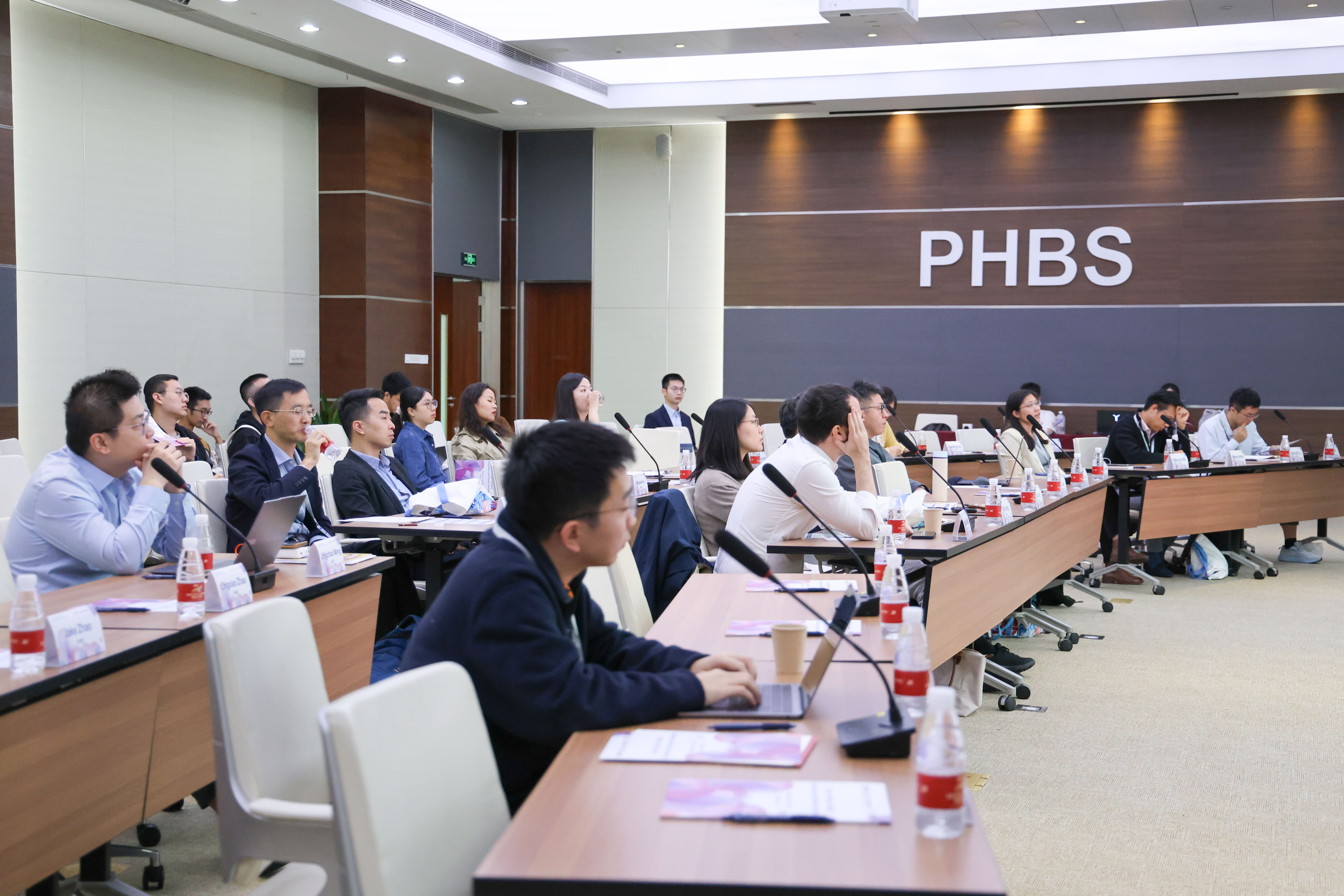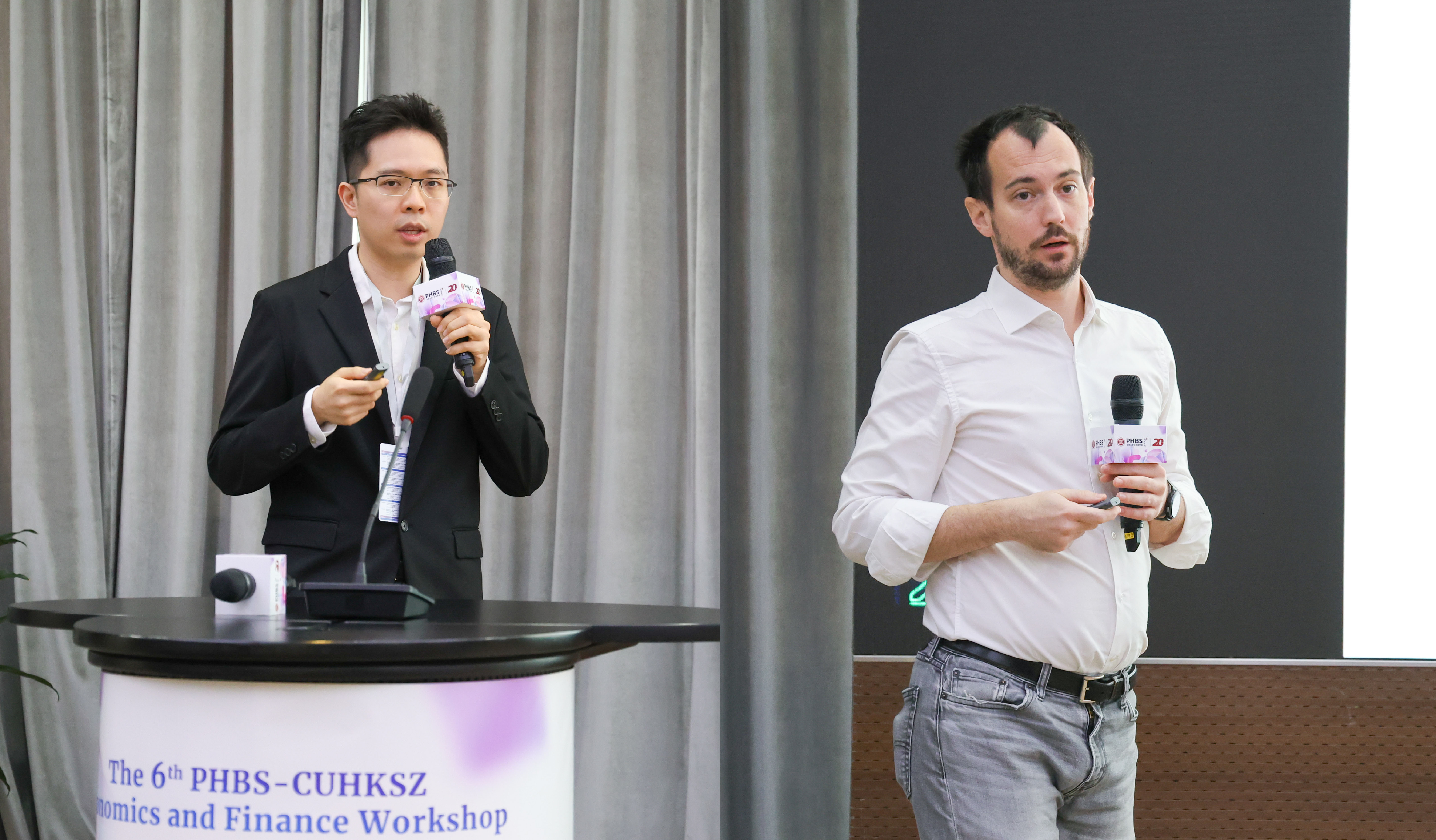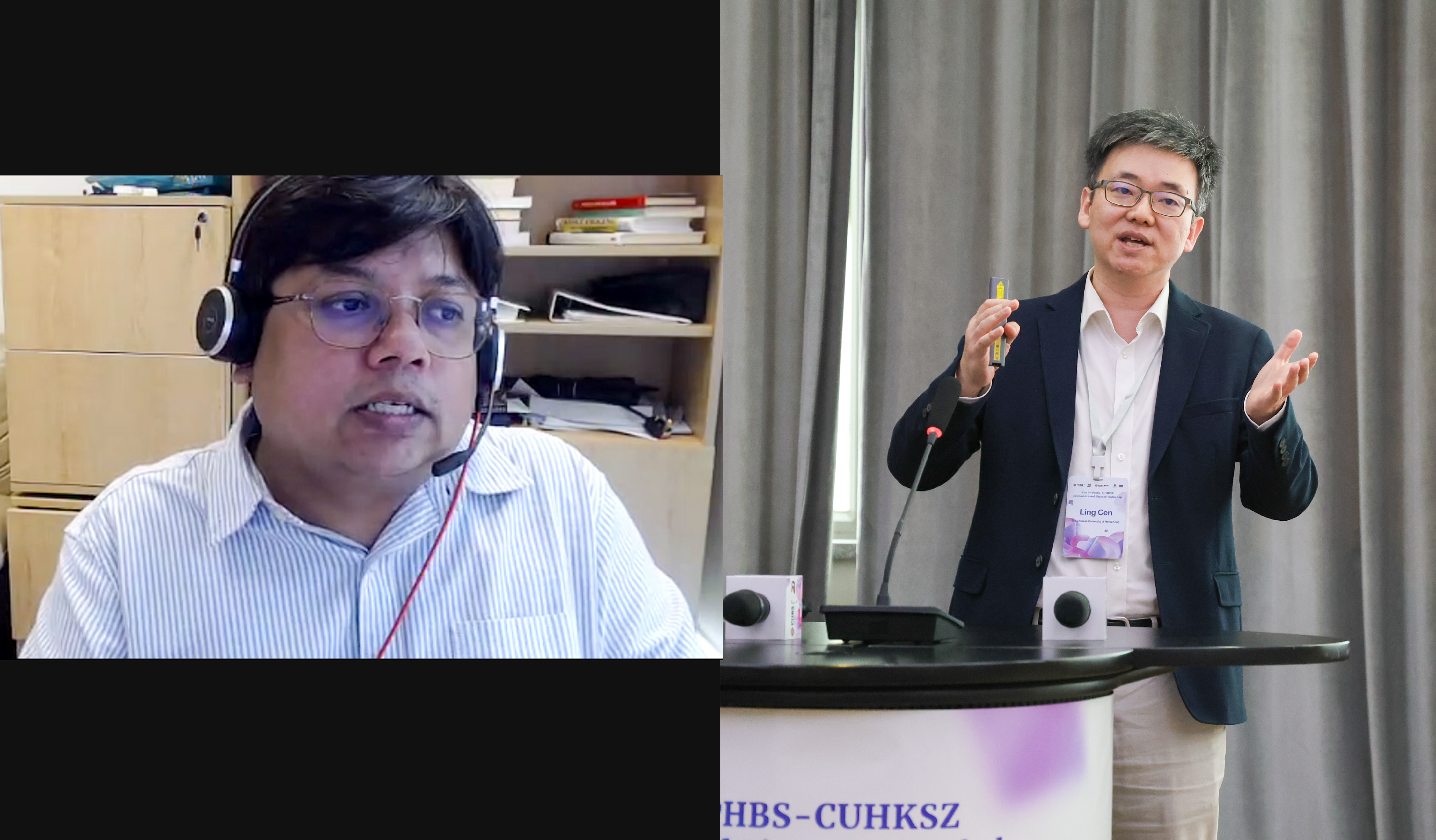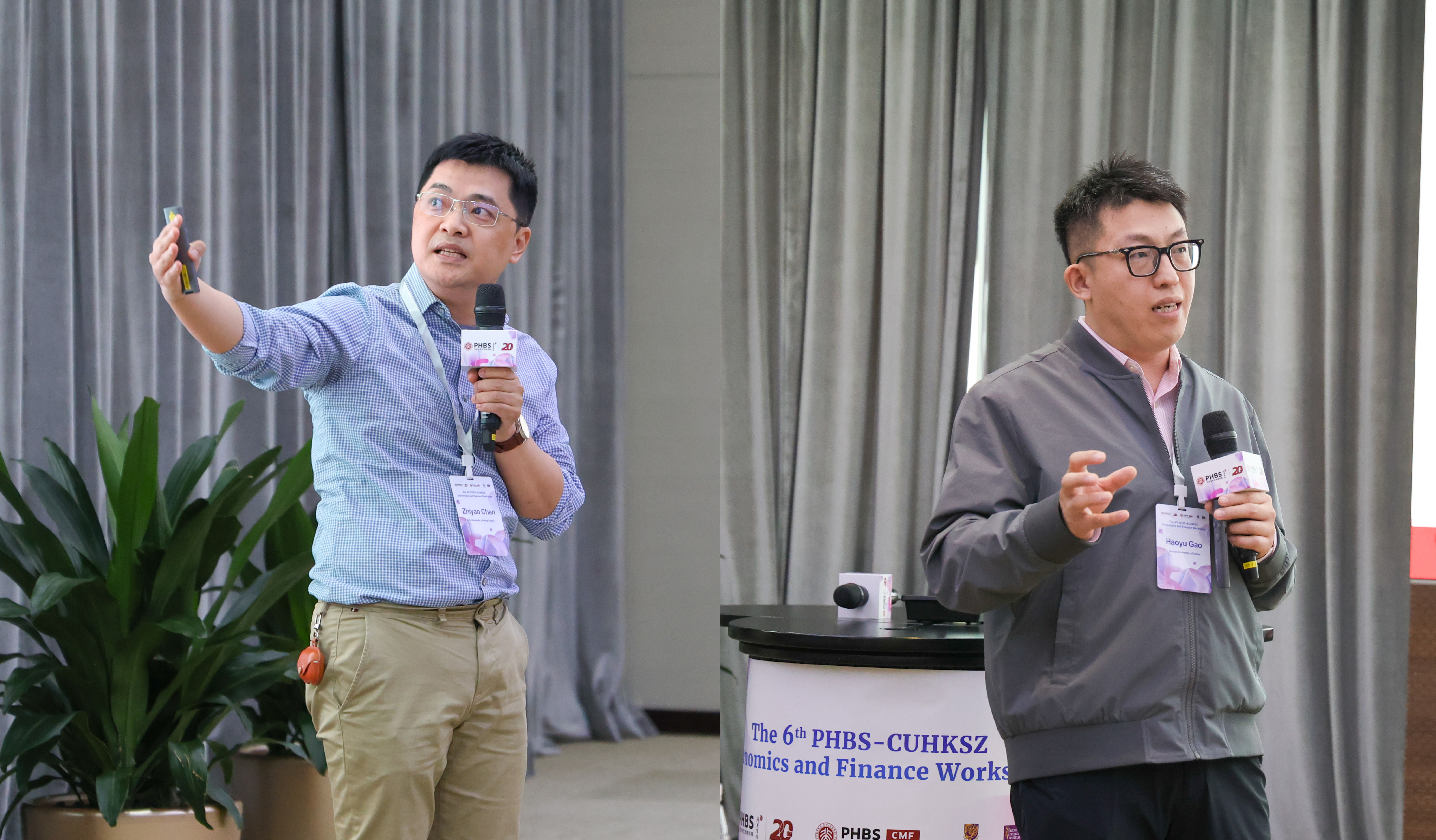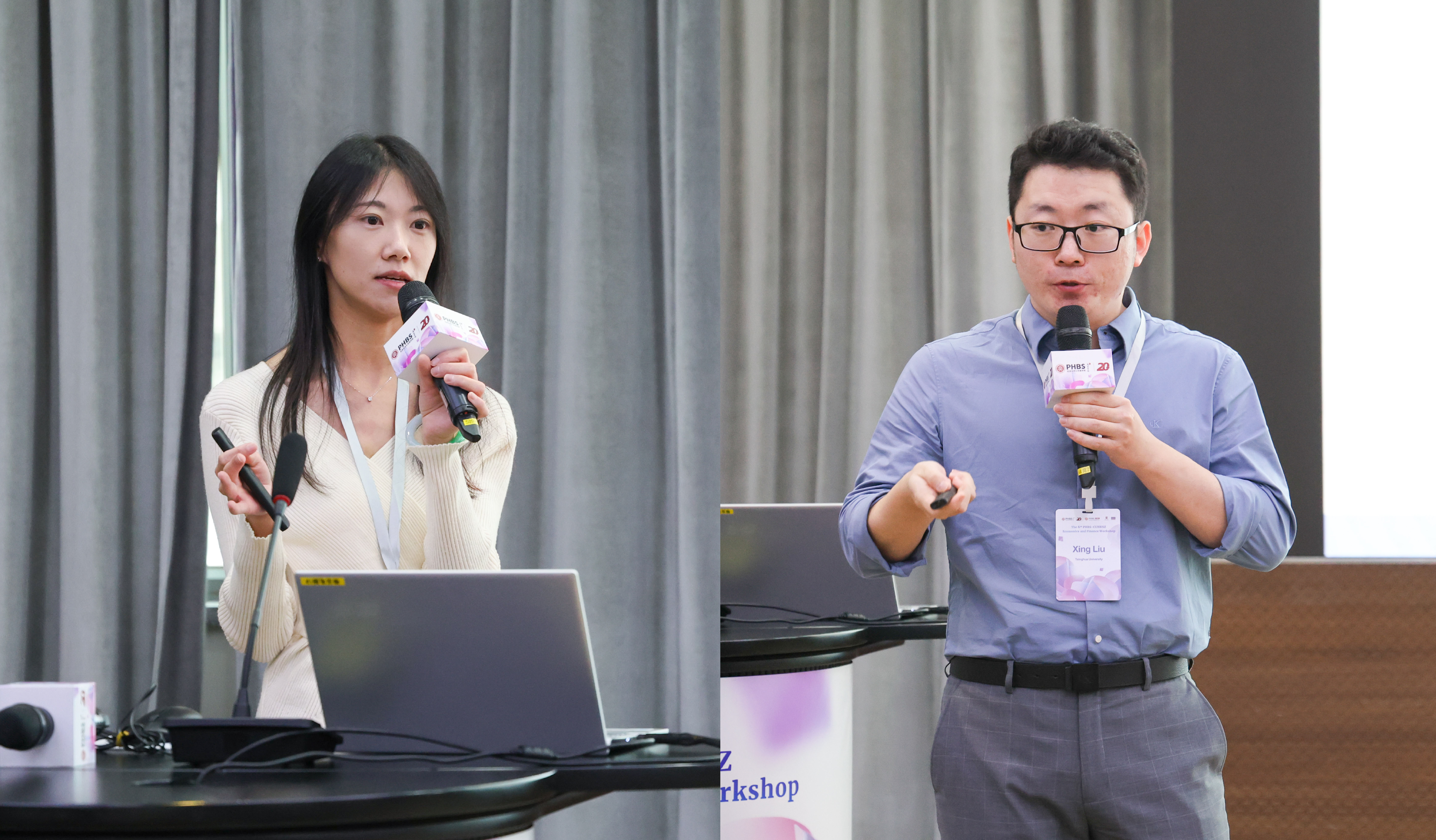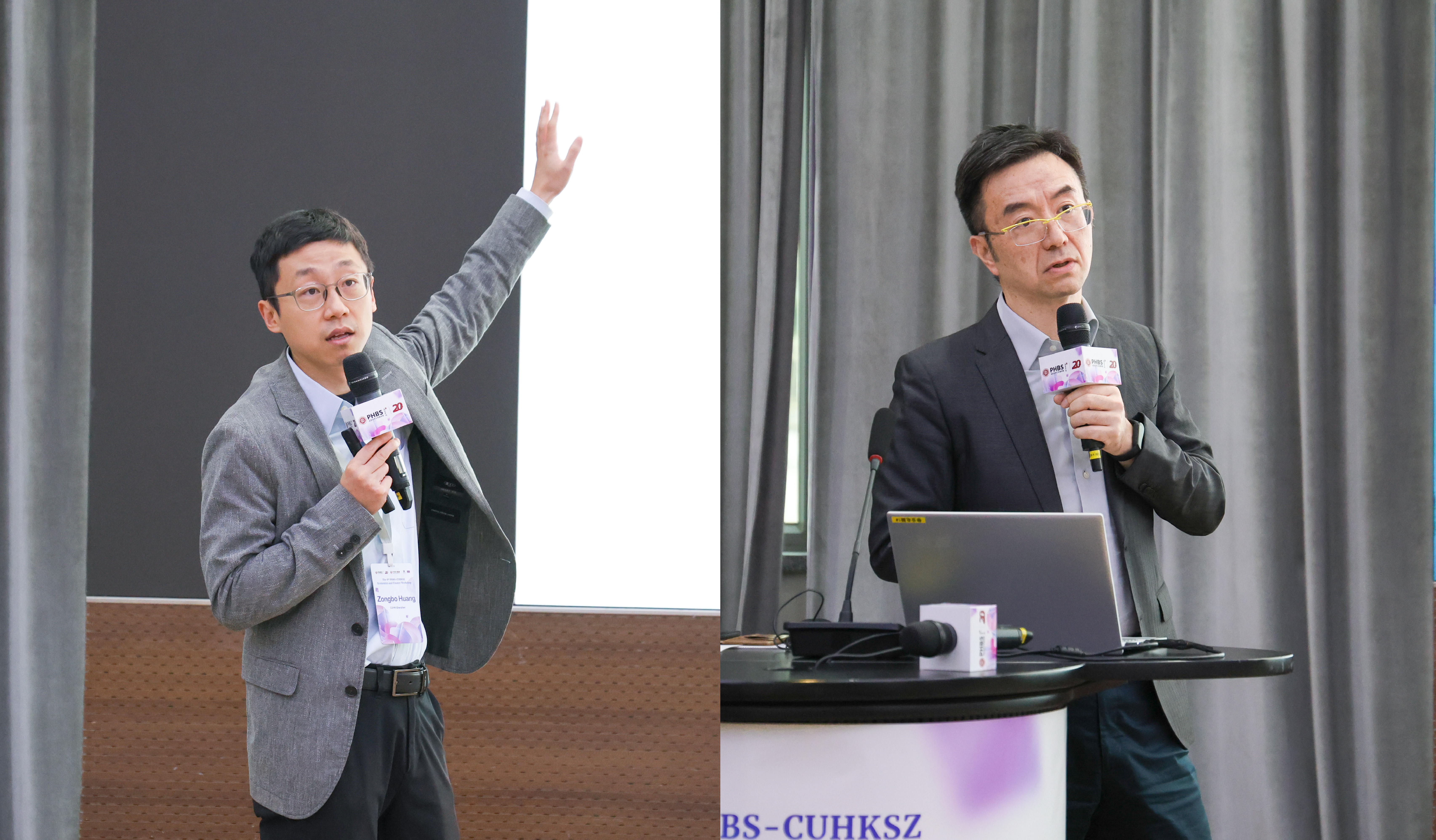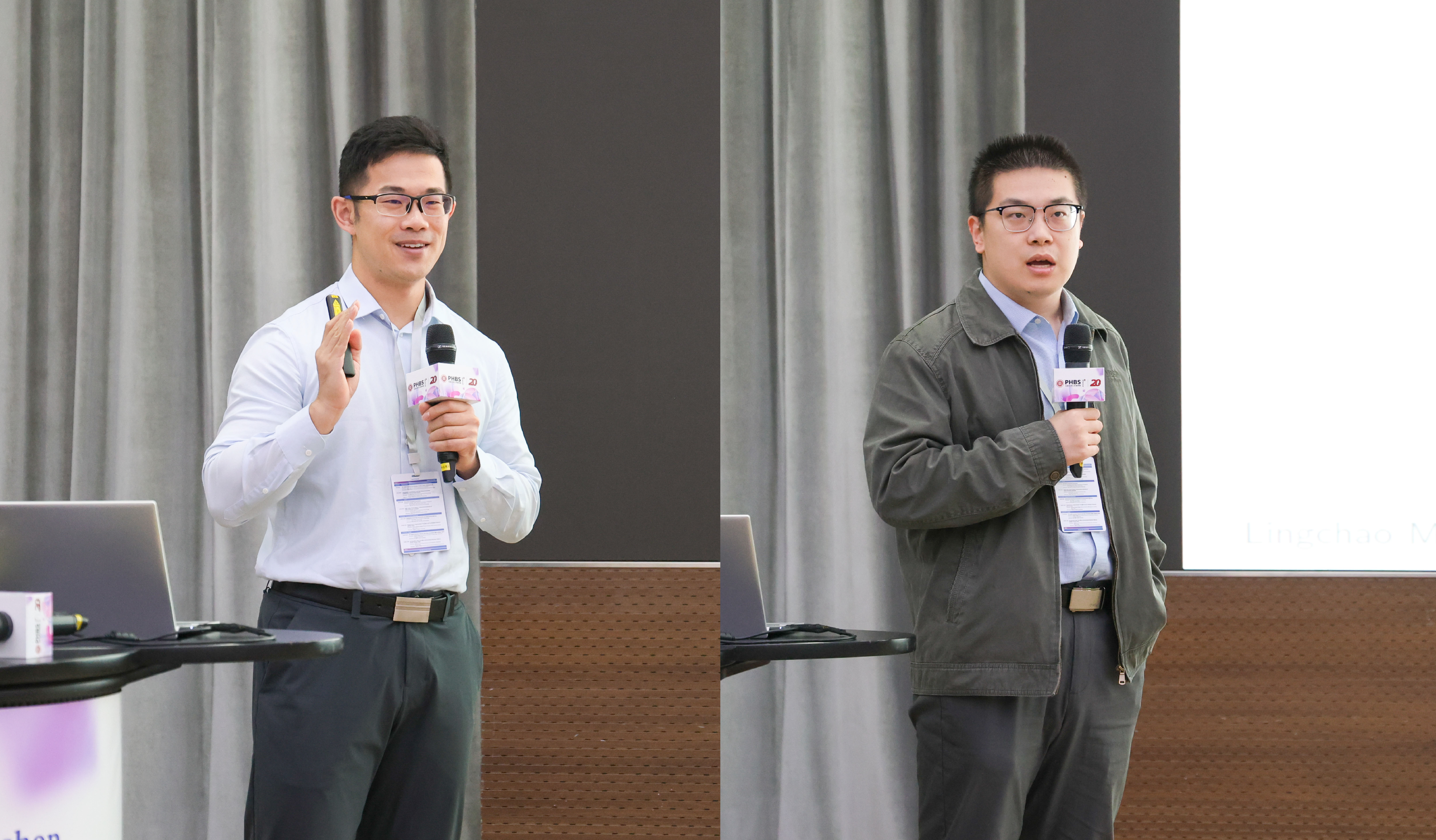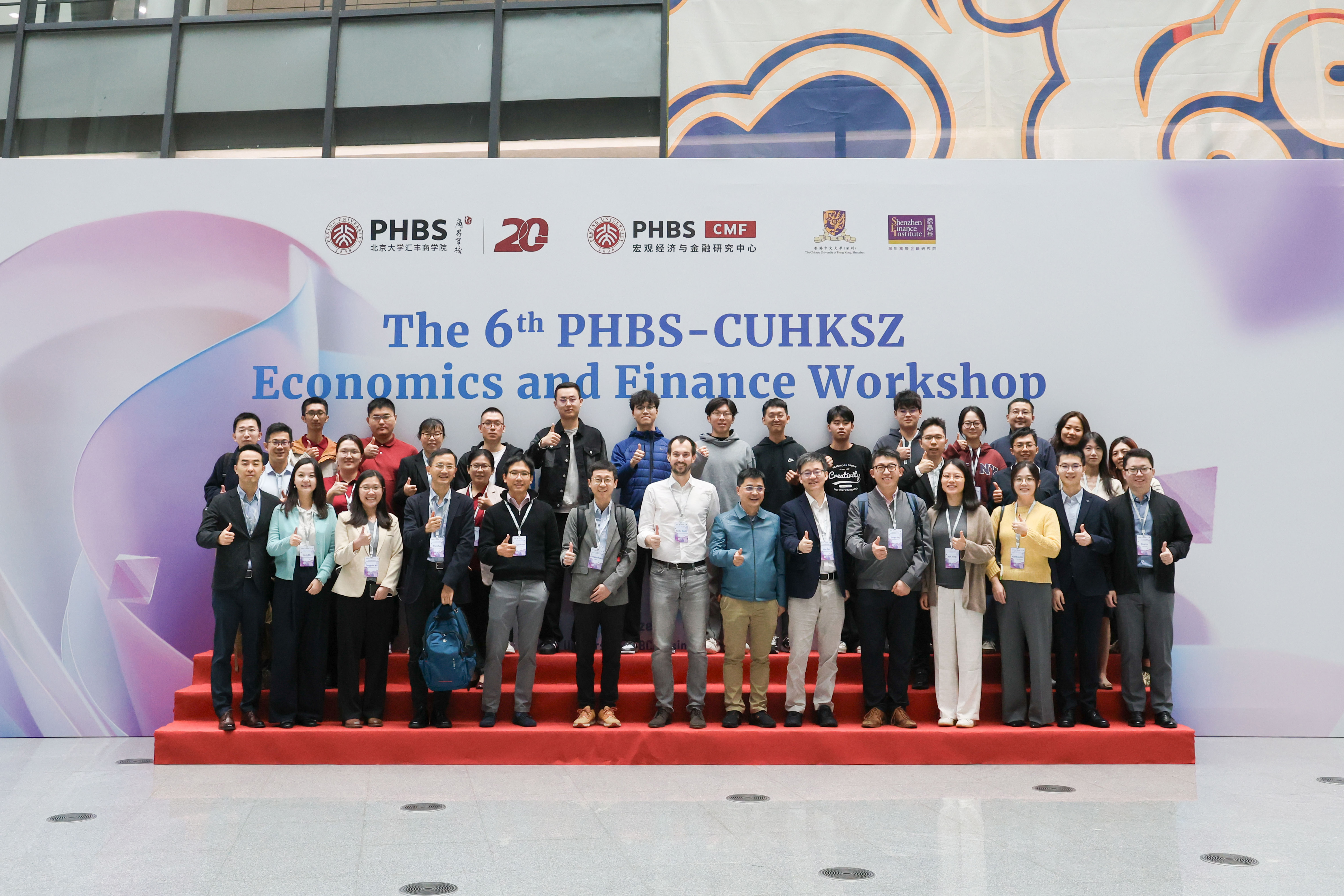Co-hosted by Peking University HSBC Business School (PHBS), and the Chinese University of Hong Kong, Shenzhen (CUHK-Shenzhen), the 6th PHBS-CUHKSZ Economics and Finance Workshop was held on November 23 and 24 at PHBS.
Scholars attend the workshop
This year’s workshop attracted scholars from leading universities including the National University of Singapore, Peking University, Tsinghua University, Fudan University, the Chinese University of Hong Kong, the Hong Kong University of Science and Technology, the University of Hong Kong, Renmin University of China, University of International Business and Economics to have in-depth discussions on the latest academic topics in the fields of economics and finance.
Kody Law and Emilio Bisetti
Kody Law, assistant professor at the Chinese University of Hong Kong, introduced the paper titled "The Opioid Epidemic and Mortgage Lending: Credit or Demand Shock?" The paper used 2SLS two-stage least square (2SLS) model to study the impact of opioids on local mortgage volume, bank-county volume, and national mortgage volume, and found that opioid abuse could act as both a demand shock and a credit risk shock: small banks' advantages in soft information enable them to mitigate credit risk; large banks can transfer loans from local areas, thereby alleviating local demand shocks. Further research found that the reduction in soft information, not default risk, drive reduced credit access and higher borrowing costs. Emilio Bisetti, assistant professor at the Hong Kong University of Science and Technology, commented on the paper and proposed suggestions such as paying attention to banks of different sizes, how to internalize special demand shocks, and more work on small/large banks’ interactions and default.
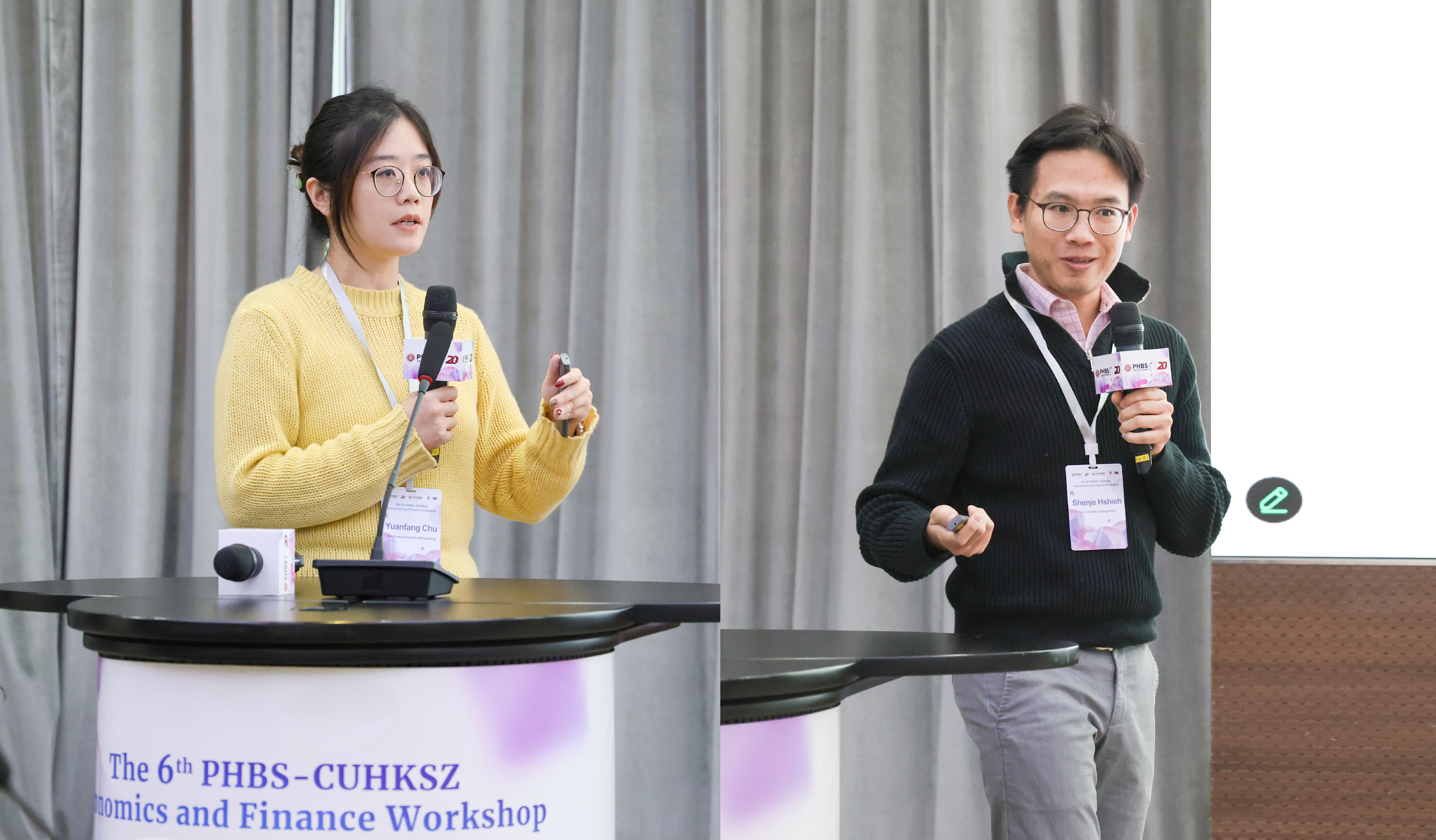
Chu Yuanfang and Shenje Hshieh
Chu Yuanfang, postdoctoral fellow at the Chinese University of Hong Kong, presented a collaborative paper titled “Competition, Cannibalization, and New Product Introductions: Evidence from the Pharmaceutical Industry.” This paper explored how competition affects firms’ decisions to commercialize innovative products. The article found that in the pharmaceutical industry, firms often delayed launching innovative products for fear of cannibalization until generic drugs entered the market, thereby reducing cannibalization costs. The findings emphasize that competitive pressure accelerates the commercialization of innovation, promotes creative destruction, and strengthens the link between innovation and economic growth. Shenje Hshieh, associate professor at the City University of Hong Kong, offered suggestions on the timing of new innovative product launches and building strategic litigation defenses.
Arkodipta Sarkar and Ling Cen
Arkodipta Sarkar, assistant professor at the National University of Singapore, shared the collaborative paper "Financially Constrained Procurement." The study found that financial constraints significantly impacted input market dynamics, with easing financial constraints lowering purchase prices and increasing purchase volumes. Further research found that by increasing competition, larger purchase quantities, and reducing buyer default risk, the effect of increasing purchasing power could be achieved. Ling Cen, associate professor at the Chinese University of Hong Kong, made suggestions such as using more cross-sectional tests, revealing more actual economic results on efficiency and equity, and generalizing the main results in other important environments.
Chen Zhiyao and Gao Haoyu
Chen Zhiyao, associate professor at City University of Hong Kong, shared his collaborative paper "Public Seeds, Private Blooms: A Q-theoretical Exploration of Public and Private Investment." The article proposed an extended Q-theoretical framework to study public and private sector investment, focusing on the Q-theory of investment in the private sector to consider endogenous public investment, and its interaction with private-sector investment and financial markets. The results showed that public investment is positively correlated with public Q (a measure of the marginal value of public capital) and negatively correlated with private sector Q. The article further constructed a new state-level public and private Q measure, providing new evidence that the investment decisions made by governors are related to financial markets. Gao Haoyu, professor at Renmin University of China, expanded the discussion from the aspects of measuring public Q, public investment rate, the role of government subsidies, how to select valuable but low-Q projects, and blended finance.
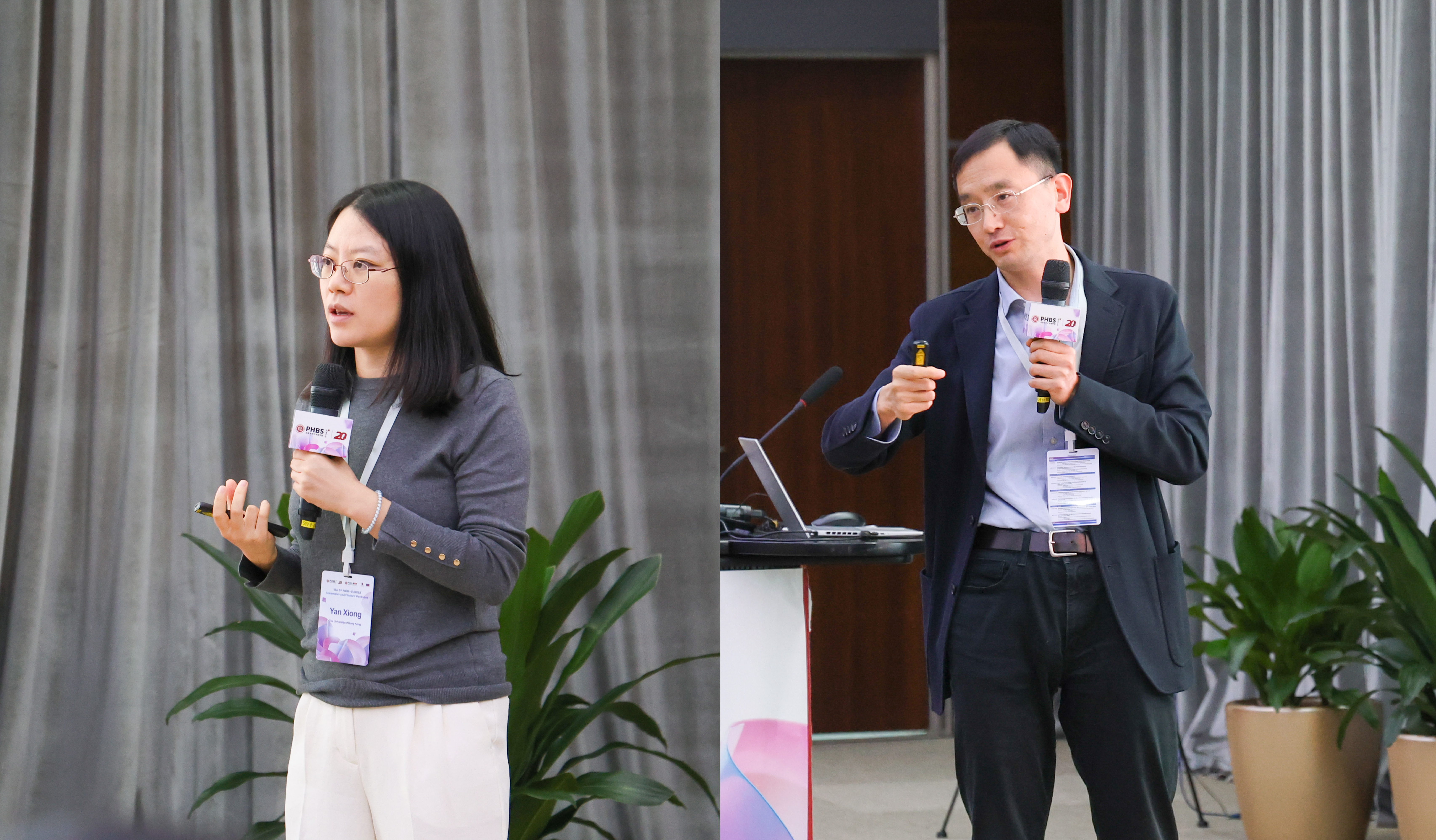
Xiong Yan and Zhao Shan
Xiong Yan, associate professor at the University of Hong Kong, presented the paper titled "Institutional Ownership Concentration and Informational Efficiency.” In the context of the increasing concentration in the asset management industry, this paper discussed the impact of this concentration on information efficiency. Using empirical evidence at market and firm levels, the paper explained that the concentration could reduce the investment efficiency through the learning mechanism and information transfer mechanism. Professor Zhao Shan from the City University of Hong Kong gave suggestions on the measurement of concentration and possible other derivative mechanisms.
Wang Xiaoyu and Liu Xing
PHBS Assistant Professor Wang Xiaoyu presented the paper titled "Displacement or Augmentation? The Effects of Al on Workforce Dynamics and Firm Value." This paper discussed how AI could affect employment and value at the firm level in the context of the controversial impact of AI developments on the labor market. Using USPTO BDSS text data and micro data of Revelio Lab employees, Wang and her coauthors empirically found that AI increased existing labor demand and significantly increased company value. Liu Xing, assistant professor from Tsinghua University, gave suggestions on the classification of AI types, measuring AI usage, and classifying workers' skills types.
Huang Zongbo and Qian Jun
Associate Professor Huang Zongbo from CUHK-Shenzhen introduced the paper titled "The Implicit Guarantee Channel: How Policy Uncertainty Affects Shadow Banks." Based on the background that policy uncertainty changes financial stability, this paper used the survey data of 475,000 financial products to study the impact of policy uncertainty on shadow banking through empirical analysis and found that increasing policy uncertainty could increase the hidden guarantee. Professor Qian Jun from Fudan University commented on the paper, giving suggestions on the sample time span, the measurement of policy uncertainty, and other issues.
Li Zehao and Meng Lingchao
Assistant Professor Li Zehao from CUHK-Shenzhen introduced "An Impossible Unity? The Effects of International Monetary Policy on Chinese Treasury Yields. " This paper studied the impact of international monetary policy on the yield of Chinese government bonds under the background that foreign interest rates continue to decline, but China's monetary policy is more independent and effective. The results showed that the foreign exchange monetary policy had a significant cumulative effect, and a strong correlation with the surrounding areas of the announced countries. Professor Meng Lingchao from the University of International Business and Economics gave suggestions on the statistical significance of the cumulative effect and the role of the announcement information.
The group photo of the participants
Initiated in 2021, the PHBS-CUHKSZ Economics and Finance Workshop is committed to stimulating the research potential of young scholars, facilitating academic exchanges among them, and promoting the academic development as well as research cooperation in the fields of economics and finance in the Guangdong-Hong Kong-Macao Greater Bay Area.
By He Pengyu, Chen Chenxuan, and Annie Jin
Source: PHBS Research Office and Public Relations & Media Office





